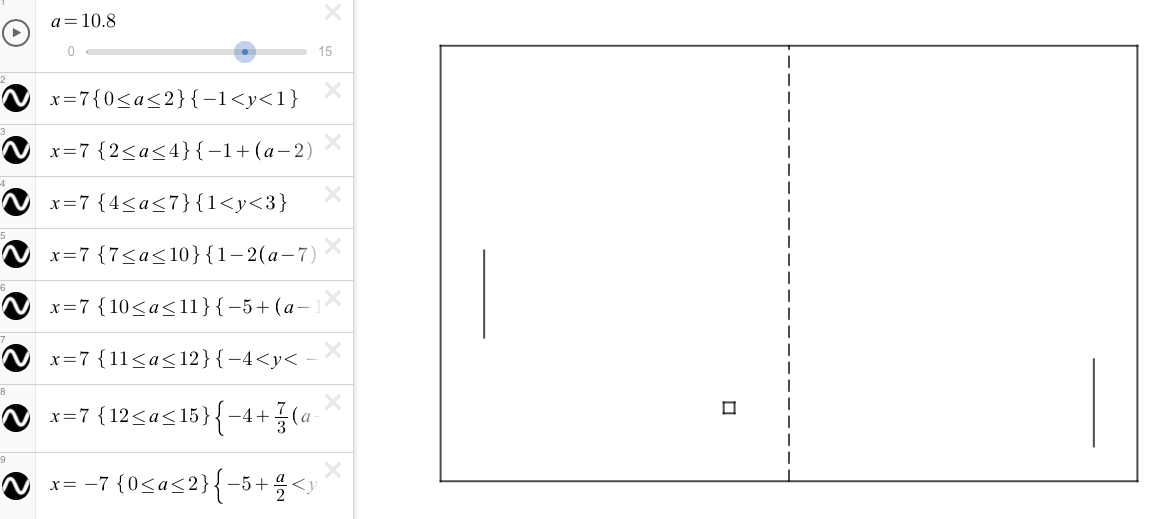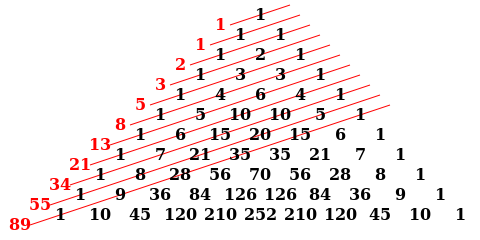 This past week the Centre for Education in Mathematics and Computing held its annual grade 9, 10 & 11 math contests (Pascal, Cayley & Fermat). They are great contests and you can see the archives here. I really like how they are written so that just about any math student can find some success but only the best can get them all right. That being said, one nice feature on the site is their Problem of the Week. They have a set for grades 5/6, 7/8, 9/10 and 11/12 that they create. Sign up to get them emailed to you each week.
This past week the Centre for Education in Mathematics and Computing held its annual grade 9, 10 & 11 math contests (Pascal, Cayley & Fermat). They are great contests and you can see the archives here. I really like how they are written so that just about any math student can find some success but only the best can get them all right. That being said, one nice feature on the site is their Problem of the Week. They have a set for grades 5/6, 7/8, 9/10 and 11/12 that they create. Sign up to get them emailed to you each week.Curriculum Tags: All
http://cemc.uwaterloo.ca/resources/potw.php
 How to Learn Mathematics: for Teachers and Parents is an online course created by Joe Boaler from Stanford. Based on the latest research, this is the new version of last year's How to Learn Mathematics. By all accounts last year's course was awesome (I just didn't have the time in the summer to take it). This year one of the differences is that it's not free ($125). The course is self paced and you have any time between June 15th and Sept 15th to complete it. The course is made up of 8 sessions and it is anticipated that each will take 1-2 hours. As the title suggests, this is for teachers and parents but eventually there will be a course for students as well. For more info, follow the link.
How to Learn Mathematics: for Teachers and Parents is an online course created by Joe Boaler from Stanford. Based on the latest research, this is the new version of last year's How to Learn Mathematics. By all accounts last year's course was awesome (I just didn't have the time in the summer to take it). This year one of the differences is that it's not free ($125). The course is self paced and you have any time between June 15th and Sept 15th to complete it. The course is made up of 8 sessions and it is anticipated that each will take 1-2 hours. As the title suggests, this is for teachers and parents but eventually there will be a course for students as well. For more info, follow the link.Curriculum Tags: All
http://scpd.stanford.edu/instanford/how-to-learn-math.jsp
 More in the "why I like Desmos" series. They have done a lot to making the boringness of domain and range a lot more interesting for students. And this time here is an example that combines both domain & range and transformations. That is, an animated version of Pong.
More in the "why I like Desmos" series. They have done a lot to making the boringness of domain and range a lot more interesting for students. And this time here is an example that combines both domain & range and transformations. That is, an animated version of Pong.Curriculum Tags: MCR3U
https://www.desmos.com/calculator/3imoiky3uv
Its been a few years since I have done this but its worth mentioning. The Barbie Bungy is a great activity. It has shown up many places on the net and here is the latest (with mention to some of the others). The perfect activity for when you need to have a fun way to look at scatterplots and extrapolation.
Curriculum Tags: MFM1P, MPM1D
http://mrvaudrey.com/2014/02/15/barbie-bungee-2014/
 A few weeks ago there was a Numberphile video about why people don't like math. I think this essay really adds to that theme. The premiss is that you never took math in high school since all you probably did was algorithms. Thanks to mike's math page for this one.
A few weeks ago there was a Numberphile video about why people don't like math. I think this essay really adds to that theme. The premiss is that you never took math in high school since all you probably did was algorithms. Thanks to mike's math page for this one.Curriculum Tags: All
https://www.edsurge.com/n/2014-02-12-opinion-you-never-did-math-in-high-school
Curriculum Tags: MDM4U
https://www.youtube.com/watch?v=dhh8Ao4yweQ
I like this Tumblr for images that help visualize mathematics. Some cool stuff here. Some are animated gifs, others have information to go with them. I like this one that Dan Meyer pointed out about the connection between Fibonacci and Pascal's Triangle.
Curriculum Tags: All
http://visualizingmath.tumblr.com/
I love this graph about how Lego's revenues have increase since it started licensing characters from movies that is made out of Legos
Curriculum Tags: Gr7, Gr8, MBF3C, MDM4U, MAP4C
http://www.wired.com/underwire/2014/02/infoporn-legos/
This is belated but still fun
Curriculum Tags: All
http://www.mathforgrownups.com/happy-valentines-day/













